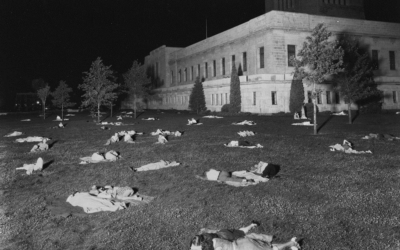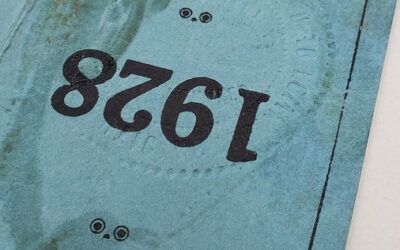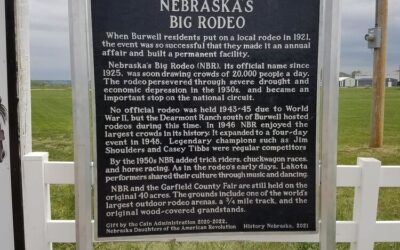Lucy Vander Sterre’s face was used as a model for a prominent statue in Omaha. But she didn’t know the statue existed for more than 30 years. In the Fall 2014 issue of Nebraska History, you can read about the statue and its purpose. Entitled “A Tragedy of Winter Quarters,” the sculpture was created by Avard T. Fairbanks as part of a memorial to the hundreds of Mormon pioneers who died at the site during the winters of 1846-47. (See this blog post.)
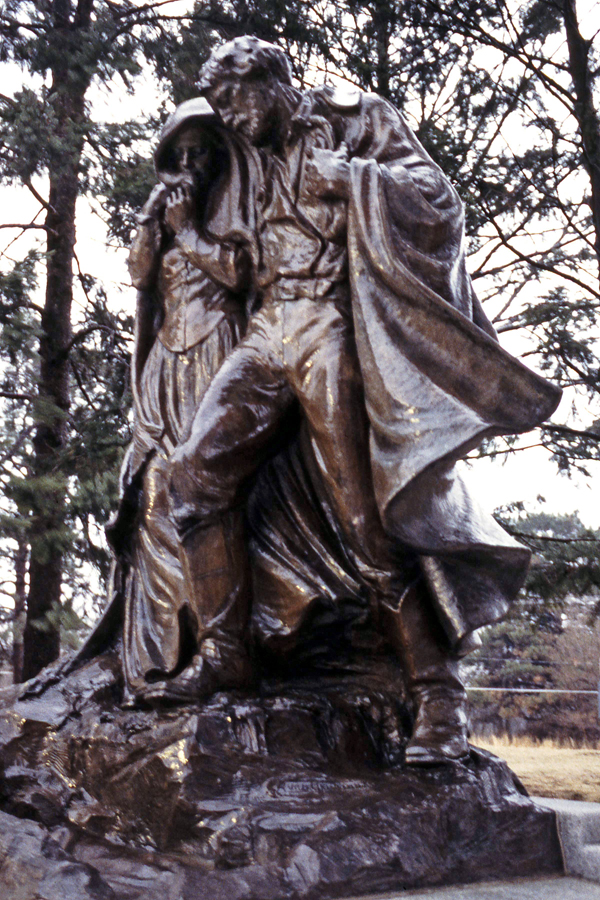
“A Tragedy of Winter Quarters, Winter Quarters Monument. 1936. Omaha, Nebraska. Photo by Kent Ahrens.
But Fairbanks couldn’t have known that one of his models would become somewhat of a pioneer herself. In the 1920s at the University of Oregon, Lucy Vander Sterre was a student and Avard T. Fairbanks was an art professor. Avard had seen Lucy walking across campus, and asked her to pose for him. Later, Lucy described the modeling sessions as unromantic – there was no young man posing with her like the one in the final piece. She never heard what became of the images, and when the art building later caught fire she thought her modeling work was lost with it. In 1924, Lucy took a break from her studies to travel to Nome, Alaska, where she taught Inuit (Eskimo) children with her brother for a year. While in Alaska she met Elmer Forsling, a Nebraskan who had been recruited by the U.S. Bureau of Standards to work on a project involving reindeer herds.
When Lucy returned to Oregon, Elmer came with her. The two were married in 1926, and over the following years they had two children and lived in Colorado, Nebraska, and Wyoming. Finally, in 1944 the family returned to Elmer Forsling’s old home on Lodgepole Creek in western Nebraska. The property had been neglected for some time and was in great need of repair. The Forslings spent years rebuilding fences and windmills, harvesting wheat, and making a home out of the property. Fast forward to the 1960s. For several summers, ranchers Kendall and Beverly Atkins of Dix, Nebraska, packed a small suitcase and a camera and toured the state. It was a good opportunity to collect pictures and stories to use in Beverly’s fourth grade Nebraska history classes. As their collection grew, several groups in the community asked them to present a slide show of their travels.
One afternoon, the Atkinses were presenting their tour to the members of the Plains Historical Society in Kimball. After the show, they were approached by a woman interested in one particular picture – Lucy Forsling had been in the audience and recognized herself in a photo taken of “A Tragedy of Winter Quarters.” Lucy told the Atkinses how she had modeled for Avard Fairbanks but thought nothing came of it. The Atkinses made prints of the slide for Lucy and her family to enjoy. Unfortunately, Lucy died a few years later, in 1972. She never saw the statue in person. When the article on “A Tragedy of Winter Quarters” was published, the Atkinses wrote to tell us about their unexpected meeting. Thanks so responsive readers, we sometimes learn more about a subject after publishing an article. If you know something about Nebraska history that you’d like to share, tell us in the comments! Our readers are a great resource in connecting the puzzle pieces of history. – Joy Carey, Editorial Assistant, Publications
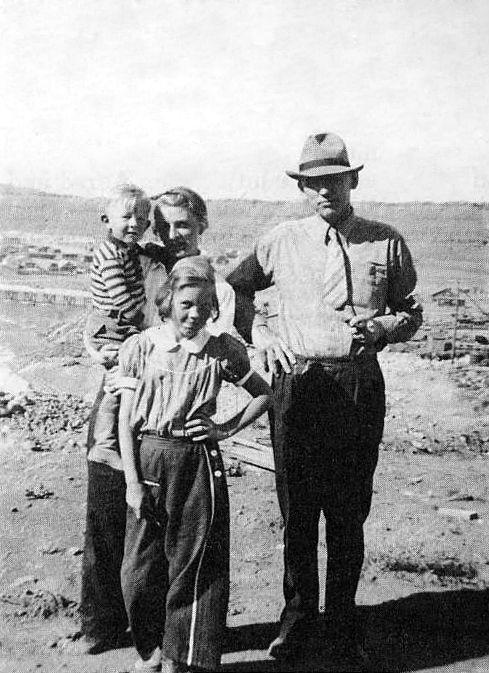
Elmer and Lucy Forsling, with their daughter, Phyllis, and son, Al. A Sunday outing when living in Casper, Wyoming. Photo from “History of Kimball County Nebraska 1888-1988.”
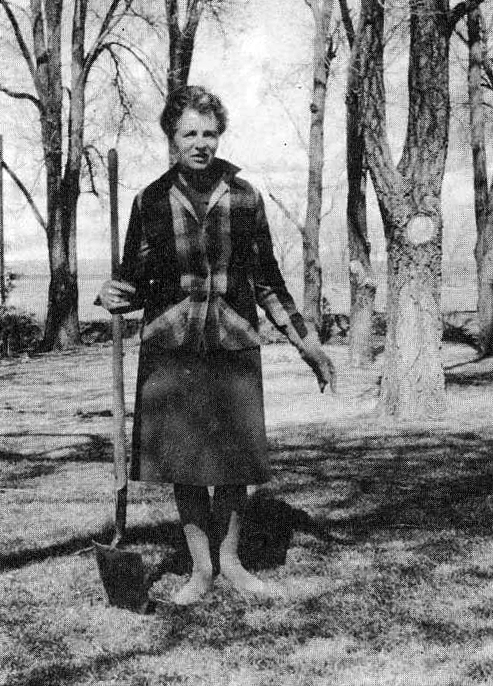
Lucy gardening at the Forsling ranch in 1968. Photo from “History of Kimball County Nebraska 1888-1988.”

